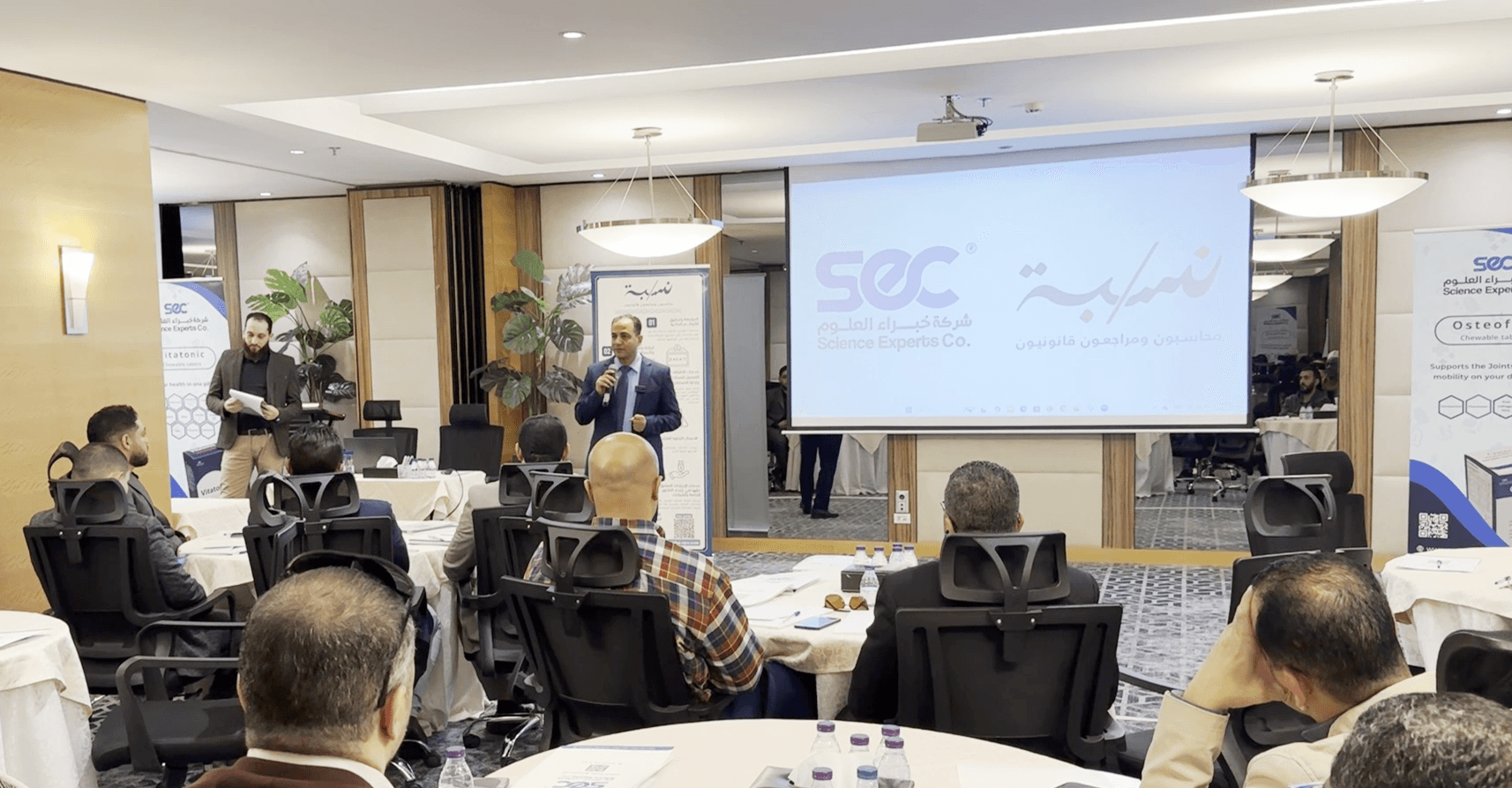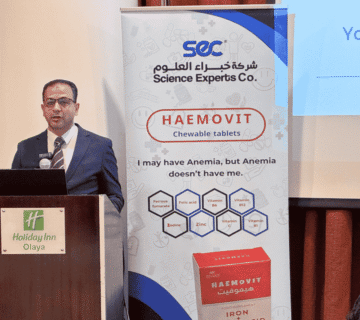The Sciences Experts Co. (SEC), in collaboration with Nisba Office for Accountants and Legal Auditors, organized a lecture titled “Shariah Guidelines for Daily Financial Transactions in Companies” which was held at the Executives Hotel in Riyadh on Friday, January 24th. The lecture aimed to raise awareness among business owners, financial managers, and accountants about how to adhere to Shariah guidelines in daily financial operations, in accordance with the principles of Islamic law.
Dr. Basem Elewa, in his lecture, addressed several key points related to financial transactions in the business environment, including how to avoid transactions that may contain elements of usury (riba) or other unlawful practices. He also discussed the importance of adhering to the principles of integrity and transparency in financial dealings to ensure sustainability and long-term growth for companies.
The Opening Speech by Dr. Osama Saeed

Dr. Basem Elewa
Founder of Sharia Audit
My passion and what I aspire to pursue: Islamic fintech (BNPL, crowdfunding, ROSCA), strengthening the concept of internal Shariah audit management within companies, adding corporate Zakat accounting skills to internal financial management, and transforming business models from traditional to Islamic, especially if we are starting the business model together from the beginning.
The lecture focused on several key topics, such as:
Introduction to the Jurisprudence of Financial Transactions
The lecture began by addressing the concept of “Jurisprudence of Financial Transactions,” which refers to understanding the Shariah rulings related to financial dealings in everyday life. Dr. Aliwa emphasized the critical role that financial management plays in ensuring institutions’ adherence to Shariah guidelines, which helps protect them from unlawful transactions and enhances their credibility.What Every Accountant and Financial Manager Must Know
Dr. Aliwa focused on the basic jurisprudential principles that accountants and financial managers must be familiar with. He discussed the types of usury (riba) and how to avoid them in business transactions, as well as the rulings on money and how to handle it in accordance with Shariah.Daily Banking Transactions
Dr. Aliwa discussed various types of bank accounts such as current accounts, savings accounts, and investment accounts, along with the Shariah rulings related to them. He also addressed the rules regarding banking cards, both credit and debit, and how to use them in compliance with Shariah guidelines.Shariah Rulings in the Medical Sector
The discussion covered how to handle supply and purchase contracts in the medical sector, particularly for hospitals and clinics, with a focus on the rulings related to financing and purchasing medical equipment through installment plans.Shariah Rulings on Commercial Transactions
The lecturer addressed commercial transactions such as buying and selling, explaining the conditions of a valid Shariah contract in these transactions. He clarified the guidelines for dealing with clients and traders, ensuring that agreements and contracts align with Shariah principles.Jurisprudence of Contracting and Real Estate
Dr. Aliwa emphasized the importance of adhering to Shariah conditions in construction and contracting contracts. He discussed the rulings regarding invalid clauses in real estate development contracts and how to apply them in a way that ensures compliance with Shariah law.Shariah Guidelines for Service Enterprises
The lecturer discussed how to identify halal (permissible) activities and distinguish them from prohibited activities in service sectors. He also reviewed the rulings related to service contracts and the guidelines for determining wages in accordance with Islamic law.Practical Outputs
Dr. Aliwa presented a practical guide for applying Shariah rulings across various business sectors. He provided real-life examples of daily transactions and how to handle them in compliance with Shariah principles.Q&A and Open Discussion
The lecture concluded with an open discussion session where Dr. Basim Aliwa answered attendees’ questions about implementing Shariah rulings in institutions and companies. This segment saw significant engagement from the audience, who were eager to learn more about how to adhere to Shariah standards in their business operations.
In conclusion:
The lecture was a valuable opportunity for those interested in applying Shariah guidelines in the world of finance and business. It focused on providing practical solutions and guidance for adhering to Shariah principles in daily financial transactions.
At the conclusion of the lecture, attendees praised the significant role such events play in raising awareness about the importance of adhering to Shariah standards in the business world, contributing to the enhancement of the Islamic economic environment and achieving sustainable growth.















No comment